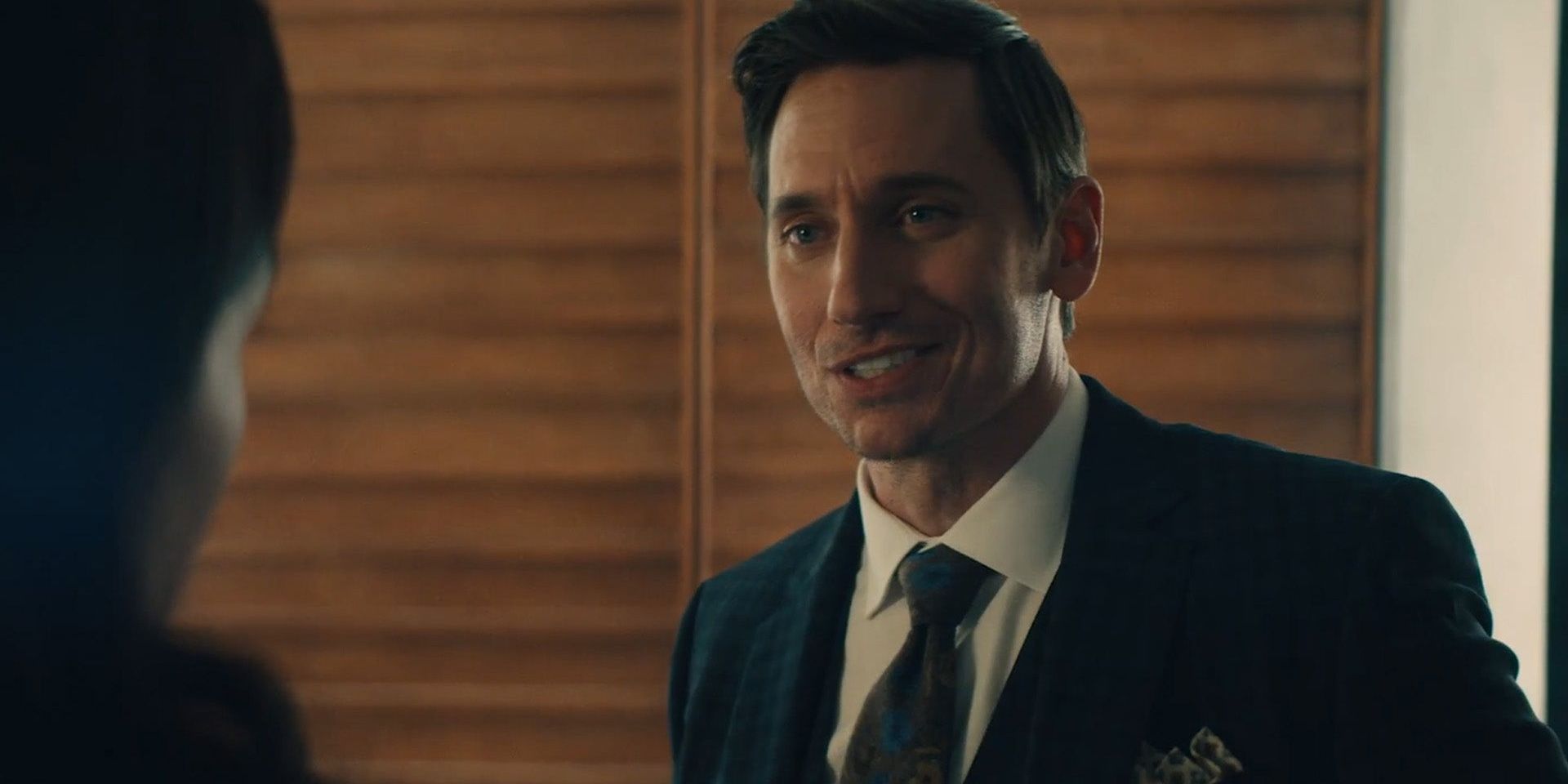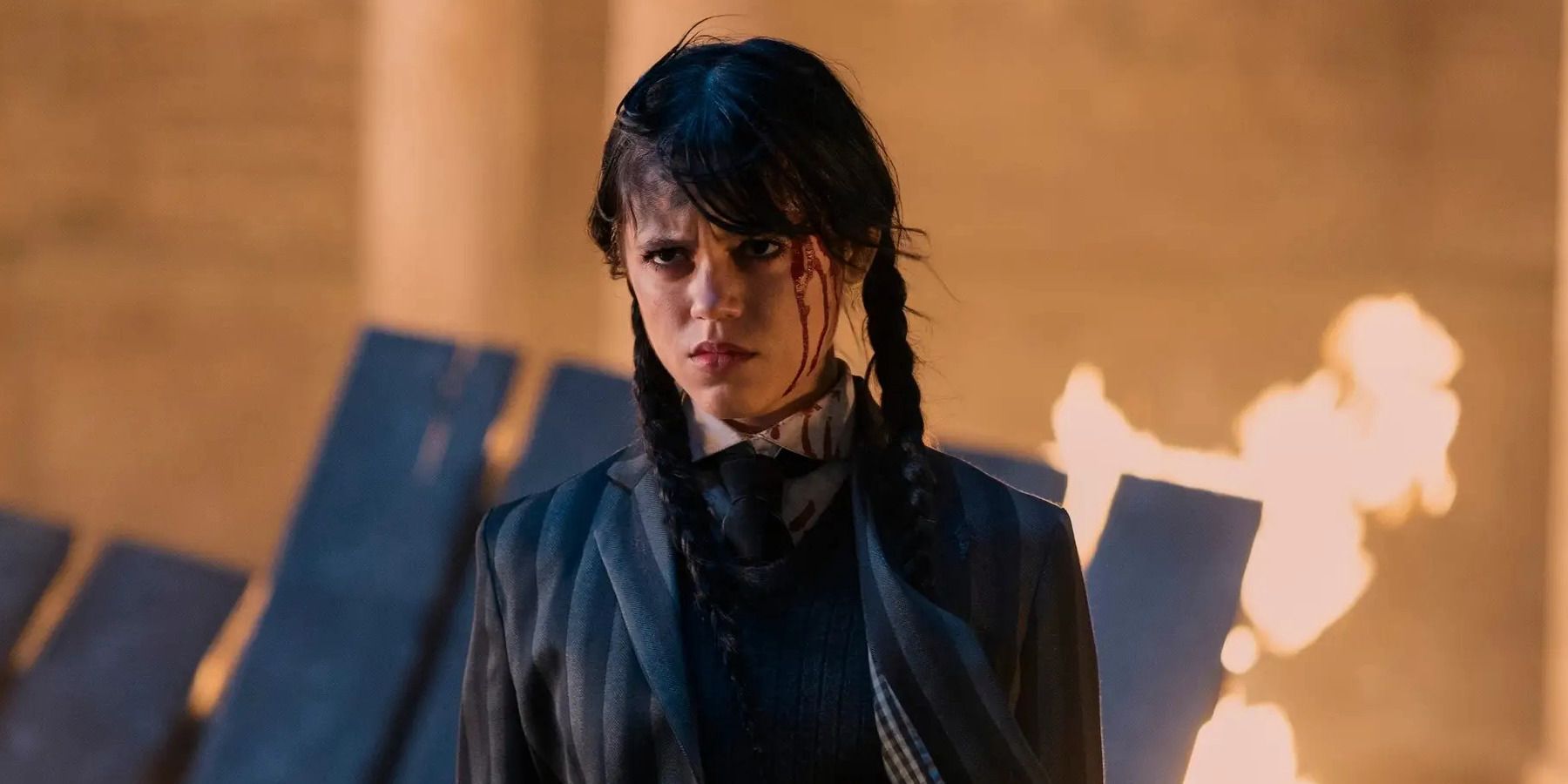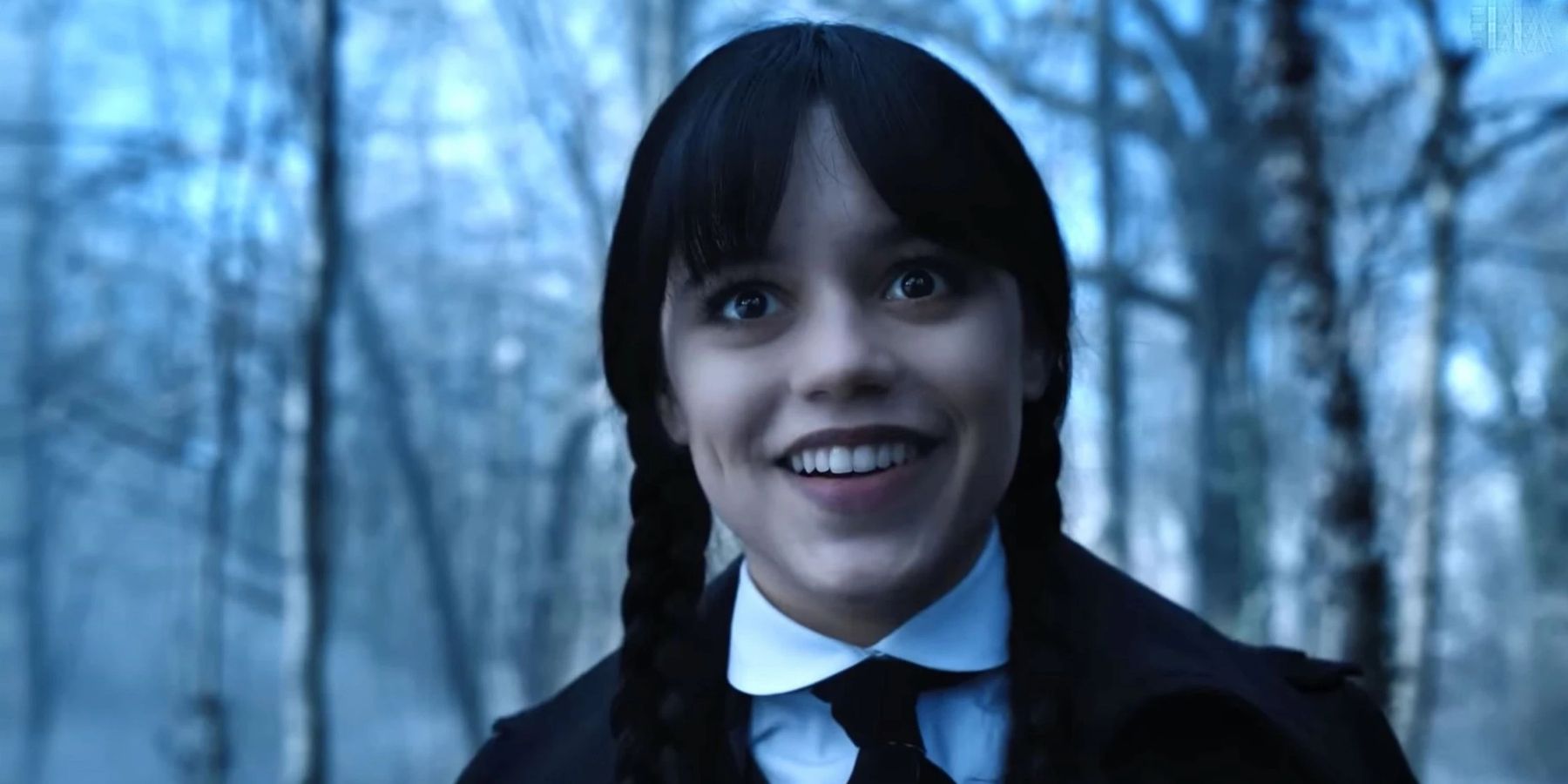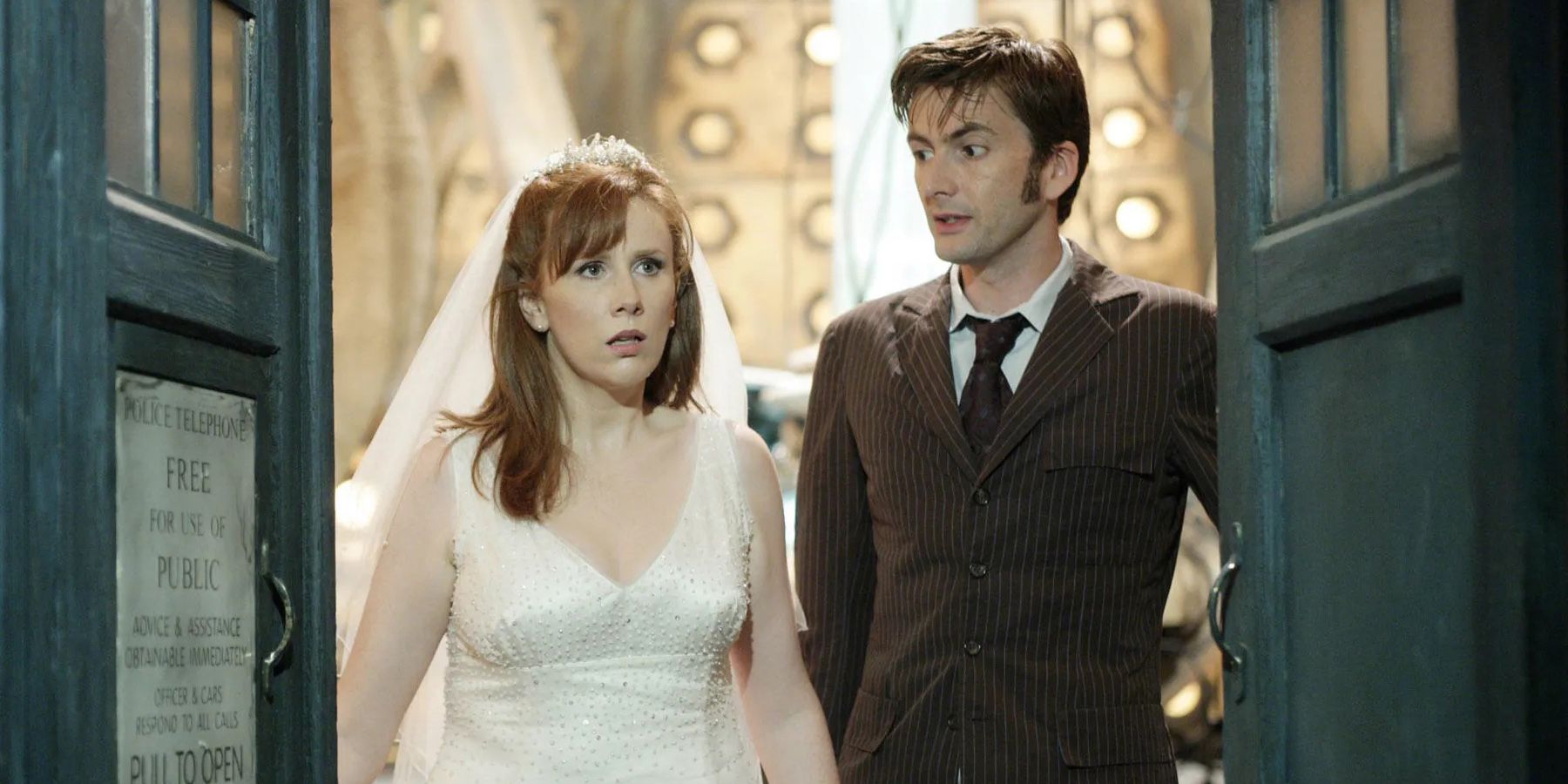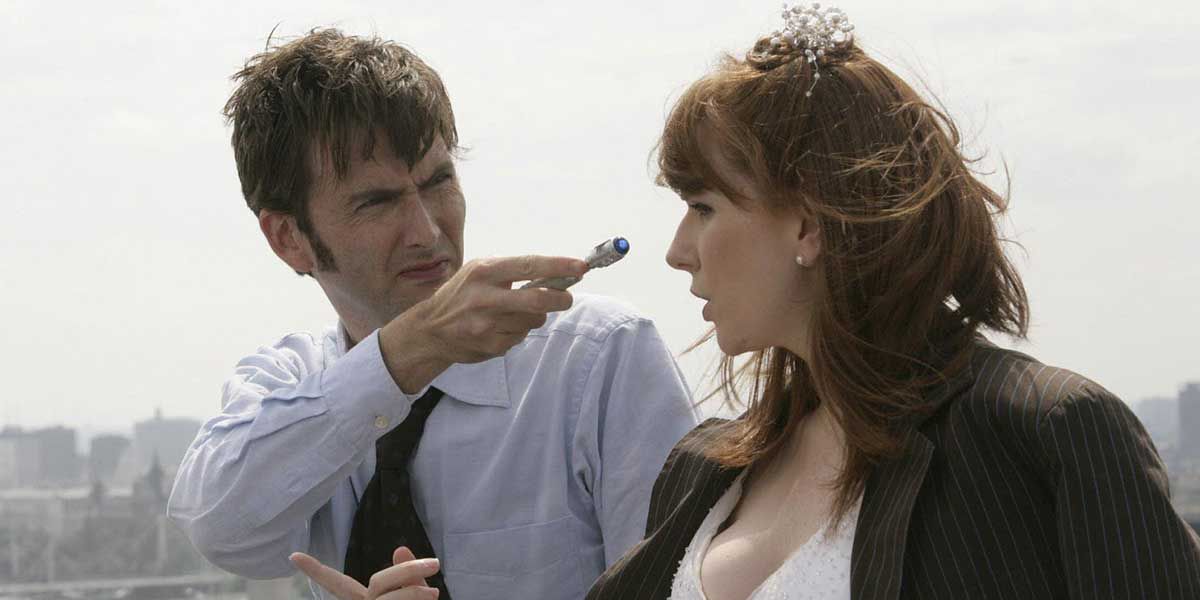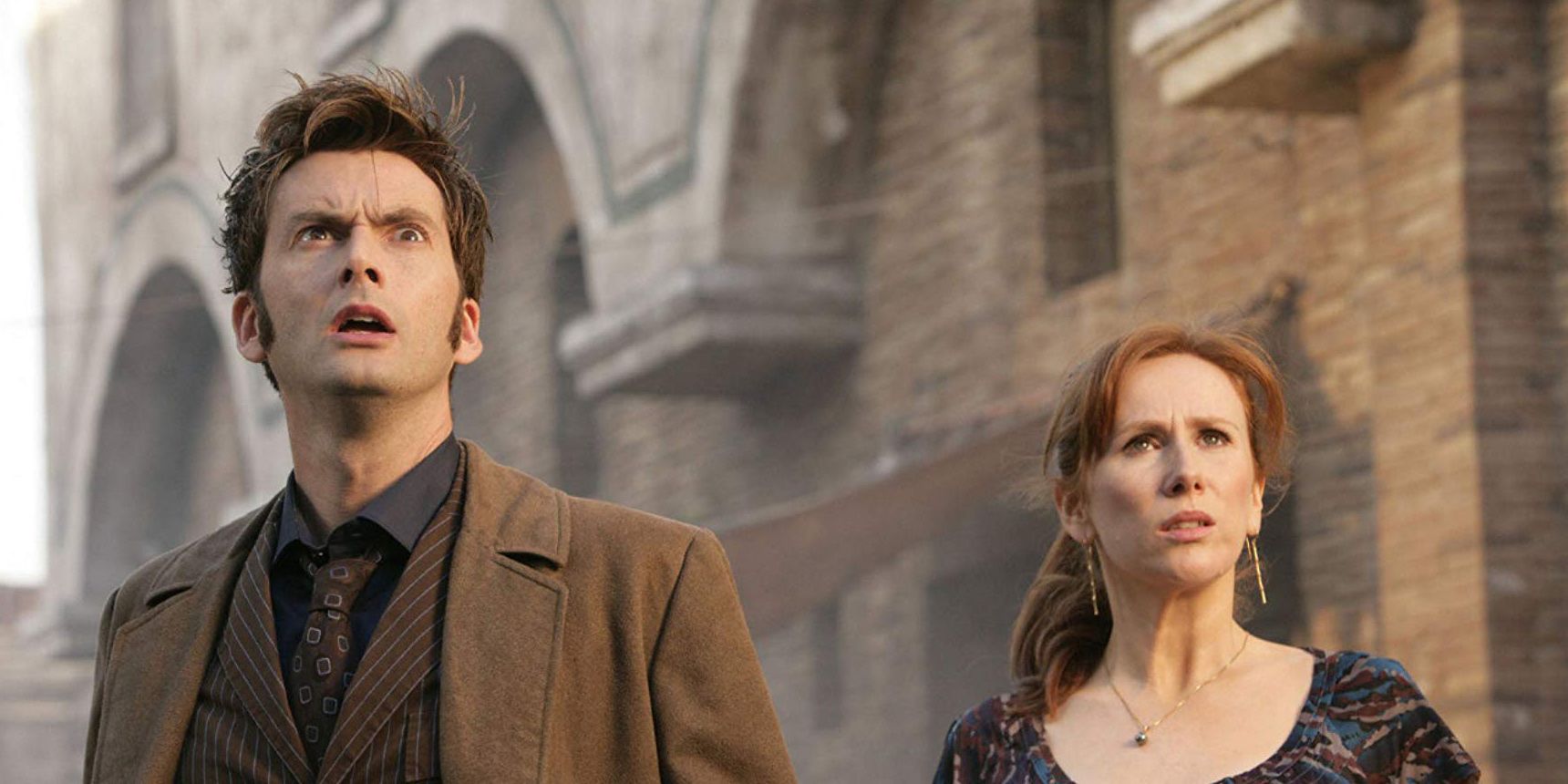When Doctor Who returned to the screen in 2005, reviving the franchise after sixteen years, it was an instant phenomenon. In the sixteen years since, New Who (as it is affectionately referred to by critics) has remained a fairly consistent staple of pop culture — due in no small part to its relationship with fans. Legions of dedicated Whovians have flooded the Internet with endless discussions and dissections, comparing Doctors and companions, ranking episodes and arcs. There is, of course, no right answer to the unending question of which companion was the best, but various companions stand out for their different relationships with the Doctor, and for the individual ways that they steer the last Time Lord on his adventures.
Donna Noble exploded into the Whoniverse — and into the TARDIS — in the final scene of Series 2, setting up her appearance in the Series 3 Christmas special. Catherine Tate had already surged to pop culture stardom independently of Doctor Who, and her appearance in the episode was a surprise for viewers, arranged with utmost secrecy. Yet anyone who watched “The Runaway Bride” would be far less surprised by her return as a companion in Series 4. The brassy comedienne might have been an unconventional choice for a companion of the Doctor, but the chemistry between Tennant and Tate was instant and undeniable.
Almost from the first, Donna is exceptional. If the allure of the Doctor is his capacity to broaden perspectives — to change the lives of his companions by introducing them to a vast and varied universe — Donna distills that journey perfectly. Her first adventure with the Doctor affects her so profoundly that she seeks him out again, in an episode that deftly weaves her investigation with the Doctor’s, culminating in one of the show’s best comedy bits, as she tries to explain herself to the Doctor through a combination of pantomime and exaggerated mouthing through a window. But Donna’s role extends beyond testifying to the transformative power of the Doctor. She transcends her initial presentation, proving her value again and again.
If the role of a companion is to ground the Doctor, to remind him that humanity is fragile and worthy, Donna embodies that purpose with astounding pathos. She is the first companion of New Who to have no romantic interest in the Doctor, leaving her free to focus on those whom the Doctor is meant to serve. She holds him accountable for his actions, pushing him to exert his power for good, to limit his instincts to punish. She sees the people (or aliens) who might otherwise be overlooked in the Doctor’s presence, and she repeatedly reminds the Doctor that his purpose is to serve, to heal, to rescue. Donna sees the value in others, and she encourages the Doctor to do the same.
The audience knew all along that Donna would not travel with the Doctor forever. No companion stays, just as no Doctor stays. Donna is the Tenth Doctor’s last companion, and her story ends in tragedy. Through a timey-wimey twist, Donna must forget her adventures with the Doctor; to recall any part of him would endanger her life. This is a glaringly contrived turn of plot, but its true tragedy lies in the trajectory of the arc as a whole. Donna begins as a shallow, self-involved, one-off character, who has little interest in the alien in front of her, let alone the wider universe. After she is transformed by her encounter with the Doctor, she has the will to explore more of the world, but she later confesses that she lacked the wherewithal. This is okay, as she has found the Doctor again. But the conclusion of her storyline returns her to a pre-Who state — presumably condemning her return to a shallow, self-involved life. She ends as she began: a bride consumed with her wedding day, taking pot shots at Nerys.
Fortunately for fans, this interpretation relies on a flat reading of Donna Noble, a character who is anything but flat. Given extraordinary circumstances, Donna becomes an extraordinary companion, but the show also suggests that she possesses hidden depths of character, which have nothing to do with the Doctor. Most obvious among these hints is the fact that she finds the Doctor again, after having rejected his first offer to tour the universe. The same persistence that is played for comedy in her romantic pursuit of Lance also fuels her investigation into the Adipose (with which she makes ample progress on her own, working without the Doctor).
Besides persistence, Donna also demonstrates surprising empathy and indefatigable positivity. In two separate episodes before the finale, she finds herself in an alternate existence, where she has no association with the Doctor. After being “saved” (placed in a virtual, time-lapsing reality) by the Library, Donna finds herself plunged into a blissful idyll, complete with a perfect husband and two children. The dismantling of this reality is sufficiently traumatic, but Donna proves her resilience, facing bravely the events that follow and returning to the real world with stoic practicality. (Still, some fans might find sufficient tragedy in her inability to reconnect with her virtual husband, whose stammer prevents him hailing her once they are returned to the real world.)
Donna’s resilience is further on display in “Turn Left,” which revisits major events from previous seasons — in a world without the Doctor. Society is quickly collapsing toward dystopia, and Donna’s family is displaced, stripped of their home, jobs, and purpose. Confined with her (frankly horrible) mother and her grandfather, Donna becomes the standard-bearer for optimism, remaining hopeful as the world around her crumbles. When the family who shares their flat is unjustly sentenced to internment, Donna responds with the empathy that viewers should by now recognize as her chief characteristic. The entire alternate reality is much bleaker than the ending of Donna’s arc, yet she demonstrates the ability to survive and grow — to thrive in difficulty, as she has all along. And, when Donna realizes that this alternate universe is untenable, she acts boldly, nobly accepting her burden to right the world.
Donna’s life changes when the Doctor introduces her to a broader universe, but the qualities that make her a great companion are those she already possessed. Unlike most of the people the various Doctors encounter, Donna is not initially overawed by the Time Lord — yet the same boldness with which she points out her lack of pockets also empowers her to censure the Doctor, to tell him when it is okay to stop. In the end, Donna’s fate is bittersweet: in losing her memories, she also loses the knowledge of her own power, her own capacity to be exceptional. But she does not lose the qualities that made her exceptional in the first place; her growth is not undone, because growth is inherent to her character. The audience can assume that Donna Noble will continue to be brilliant…as she always was.

